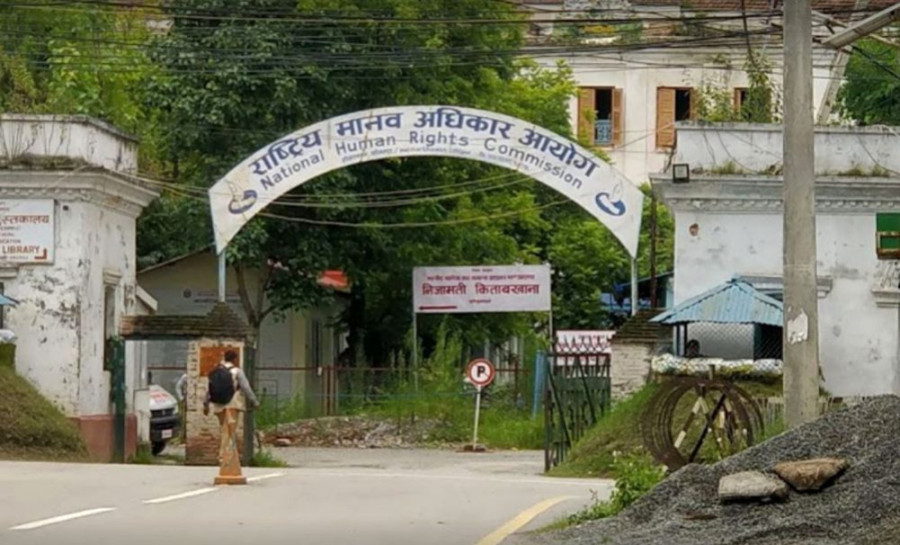National
Dismal enforcement of rights body’s recommendations gives rise to impunity
‘Non-implementation of the commission’s recommendations means depriving the victims of justice. This promotes impunity,’ says commission secretary.
Post Report
Despite repeated pledges, successive governments continue to show their indifference to implementing the National Human Rights Commission’s recommendations, giving rise to the culture of impunity in the country.
Since its establishment in 2000, the constitutional rights watchdog has made 1,618 recommendations, including 145 for policy reforms. However, only 13.66 percent of them have been fully implemented while the share of partial implementation and non-implementation stands at 36.09 percent and 51.23 percent, respectively.
A majority of implemented cases are related to monetary compensation. Most of the recommendations for criminal investigation even in heinous crimes like extrajudicial killings have been left unattended for years.
“Non-implementation of the commission’s recommendations means depriving the victims of justice. This ultimately promotes impunity,” said Murari Kharel, secretary at the commission, at an interaction on Wednesday.
As per section 9 of the NHRC Act, the commission can recommend that the relevant agency immediately provide interim relief or rescue victims in urgent need of intervention. “The agency concerned shall have to provide relief to the victim immediately after the commission issues an order,” reads the section.
As per section 13 of the Act, after investigating the complaints, the commission can direct the government agency concerned to act. Such agencies must provide an explanation to the commission if they are unable to act.
“If the commission writes again for implementation after reviewing the response, the agency concerned shall have to implement it as soon as possible and inform the commission,” reads the Act.
Despite these provisions, successive governments have bypassed these provisions.
Kharel said following the pessimistic results in addressing the recommendation, the commission held consultations with the chief secretary, secretaries from the concerned ministries and officials from relevant government agencies. However, there has been no progress.
If the records at the commission are anything to go by, except for some departmental actions against perpetrators, the government has not implemented a single recommendation for compensation or legal action by the commission in four and a half years.
The majority of over 500 recommendations for interim relief, compensation, departmental actions against perpetrators and criminal prosecutions since the current team of office bearers took the commission’s command have been ignored. Led by Chief Commissioner Top Bahadur Magar, the five-member team joined the commission in February 2021.
All three major parties—the Nepali Congress, the CPN-UML and the CPN (Maoist Centre)—have led the federal government over the past four years.
Following repeated calls, the Prime Minister’s Office (PMO), last year, formed a mechanism to increase the implementation rate. The mechanism, led by a joint-secretary of the PMO, has representatives from various ministries, security agencies and the commission. The initiative also has not yielded positive results.
The commission sends its recommendations to the PMO as a liaison government agency. The PMO then forwards them to the respective ministers, and the ministers pass them on to their respective departments, which is a time-consuming process.
For instance, a recommendation for action against police officials accused of human rights violation first lands at the PMO. Next it is forwarded to the Ministry of Home Affairs, and then the Nepal Police. This process takes weeks. Likewise, the recommendations for interim relief go to the finance ministry.
“Almost all the recommendations regarding interim relief and monetary compensation remain pending at the finance ministry,” said an official at the PMO.
Those who have a good understanding about the NHRC say it should take the support from the civil society to pressurise the government to implement its recommendations.
“The civil society must have ownership in the commission to lobby for it. And the commission needs to earn that trust which I see lacking,” said Gauri Pradhan, a former member at the commission, at the interaction.




 11.12°C Kathmandu
11.12°C Kathmandu













